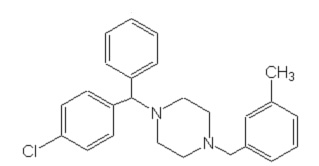Definition
Labyrinthitis is an inflammation of the inner ear that is often a complication of otitis media. It is caused by the spread of bacterial or viral infections from the head or respiratory tract into the inner ear.
Description
Labyrinthitis is characterized by dizziness or feelings of motion sickness caused by disturbance of the sense of balance.
Causes & symptoms
Causes
The disease agents that cause labyrinthitis may reach the inner ear by one of three routes:
- Bacteria may be carried from the middle ear or the membranes that cover the brain.
- The viruses that cause mumps, measles, influenza, and colds may reach the inner ear following an upper respiratory infection.
- The rubella virus can cause labyrinthitis in infants prior to birth.
Labyrinthitis can also be caused by toxic drugs.
Symptoms
The primary symptoms of labyrinthitis are vertigo (dizziness), accompanied by hearing loss and a sensation of ringing in the ears called tinnitus. Vertigo occurs because the inner ear controls the sense of balance as well as hearing. Some patients also experience nausea and vomiting and spontaneous eye movements in the direction of the unaffected ear. Bacterial labyrinthitis may produce a discharge from the infected ear.
Diagnosis
The diagnosis of labyrinthitis is based on a combination of the patient's symptoms and history--especially a history of a recent upper respiratory infection. The doctor will test the patient's hearing, and order a laboratory culture to identify the organism if the patient has a discharge.
If there is no history of a recent infection, the doctor will order extra tests in order to exclude injuries to the brain or Meniere's disease.
Treatment
Medication
Patients with labyrinthitis are given antibiotics, either by mouth or intravenously to clear up the infection. They may also be given meclizine (Antivert, Bonine) for vertigo and nausea.
Surgery
Some patients require surgery to drain the inner and middle ear.
Supportive care
Patients with labyrinthitis should rest in bed for three to five days until the acute dizziness subsides. Patients who are dehydrated by repeated vomiting may need intravenous fluid replacement. In addition, patients are advised to avoid driving or similar activities for four to six weeks after the acute symptoms subside, because they may have occasional dizzy spells during that period.
Prognosis
Most patients with labyrinthitis recover completely, although it often takes five to six weeks for the vertigo to disappear completely and the patient's hearing to return to normal. In a few cases the hearing loss is permanent.
Prevention
The most effective preventive strategy includes prompt treatment of middle ear infections, as well as monitoring of patients with mumps, measles, influenza, or colds for signs of dizziness or hearing problems.
Key Terms
- Labyrinth
- The bony cavity of the inner ear.
- Meniere's syndrome
- A disease of the inner ear marked by recurrent episodes of vertigo and roaring in the ears lasting several hours. Its cause is unknown.
- Otitis media
- Inflammation of the middle ear. It can lead to labyrinthitis.
- Vertigo
- A sensation of dizziness marked by the feeling that one's self or surroundings are spinning or whirling.
Further Reading
For Your Information
Books
- Baloh, Robert W. "Episodic Vertigo." In Conn's Current Therapy, edited by Robert E. Rakel. Philadelphia: W. B. Saunders Company, 1998.
- Borer, William Z., and Duane W. Taebel. "Nausea, Vomiting, and Dyspepsia." In Current Diagnosis 9, edited by Rex B. Conn, et al. Philadelphia: W. B. Saunders Company, 1997.
- Jackler, Robert K., and Michael J. Kaplan. "Ear, Nose, & Throat." In Current Medical Diagnosis & Treatment 1998, edited by Lawrence M. Tierney, Jr., et al. Stamford, CT: Appleton & Lange, 1997.
- "Labyrinthitis." In Professional Guide to Diseases, edited by Stanley Loeb, et al. Springhouse, PA: Springhouse Corporation, 1991.
- "Otolaryngology: Purulent Labyrinthitis." In The Merck Manual of Diagnosis and Therapy, vol. II, edited by Robert Berkow, et al. Rahway, NJ: Merck Research Laboratories, 1992.
- Rowe, Lee D. "Otolaryngology-- Head & Neck Surgery." In Current Surgical Diagnosis & Treatment, edited by Lawrence W. Way. Stamford, CT: Appleton & Lange, 1994.
Gale Encyclopedia of Medicine. Gale Research, 1999.



